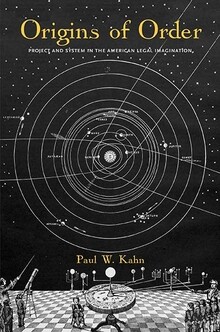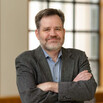Professor Paul Kahn Reconceptualizes the Nature of Legal Order
In his new book, Origins of Order: Project and System in the American Legal Imagination, Robert W. Winner Professor of Law and the Humanities Paul W. Kahn ’80 examines how two different concepts of order — project and order — shape the American social imagination.

Kahn uses these two concepts to explore the American legal tradition. He shows that the revolutionary tradition of project carries forward in America law through the middle of the 19th century. The concept of project provides an organizing idea for the emerging constitutionalism and the practice of judicial review. Around the time of the Civil War, however, the concept of system becomes the organizing principle of the legal order. The written constitution – the product of a project – is displaced from attention by the “unwritten constitution,” which is the spontaneous order that develops as the law of a free people. “System informs the growth of the social sciences and animates the birth of the new American law school under Christopher Langdell at Harvard,” Kahn said. “By the end of the century, we lose the idea that the Revolutionary project represented a break with British law, as constitutionalism and common law converge as similar systems.”
Kahn’s philosophical inquiry into project and system suggests a range of continuing investigations into contemporary legal issues, including the nature of international law, the reasons for jurisprudential disagreement, the nature of criminal responsibility, the competition between interpretive approaches, and the grounds of the regulatory state. Kahn is pursuing many of these subjects through collaborations with young scholars throughout the world.
Paul Kahn teaches in the areas of constitutional law and theory, international law, cultural theory, and philosophy. Before coming to Yale in 1985, he clerked for Justice White in the United States Supreme Court and practiced law in Washington, D.C., during which time he was on the legal team representing Nicaragua before the International Court of Justice. He is the author of Legitimacy and History: Self-Government in American Constitutional Theory; The Reign of Law: Marbury v. Madison and the Construction of America; The Cultural Study of Law: Reconstructing Legal Scholarship; Law and Love: The Trials of King Lear; Putting Liberalism in its Place; Out of Eden: Adam and Eve and the Problem of Evil; Sacred Violence: Torture, Terror, Sovereignty; Finding Ourselves at the Movies: Philosophy for a New Generation; Political Theology: Four New Chapters on the Concept of Sovereignty; and Making the Case: The Art of the Judicial Opinion.


